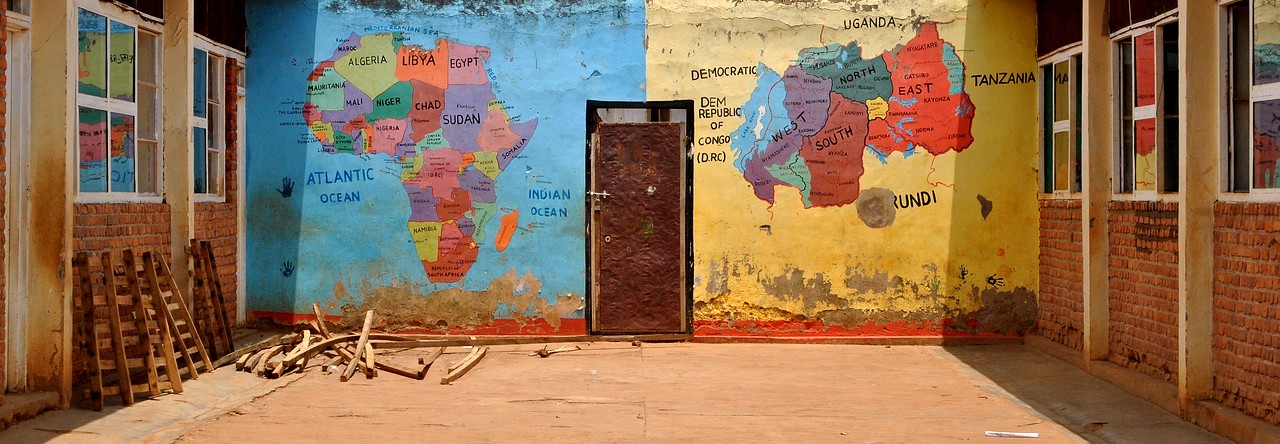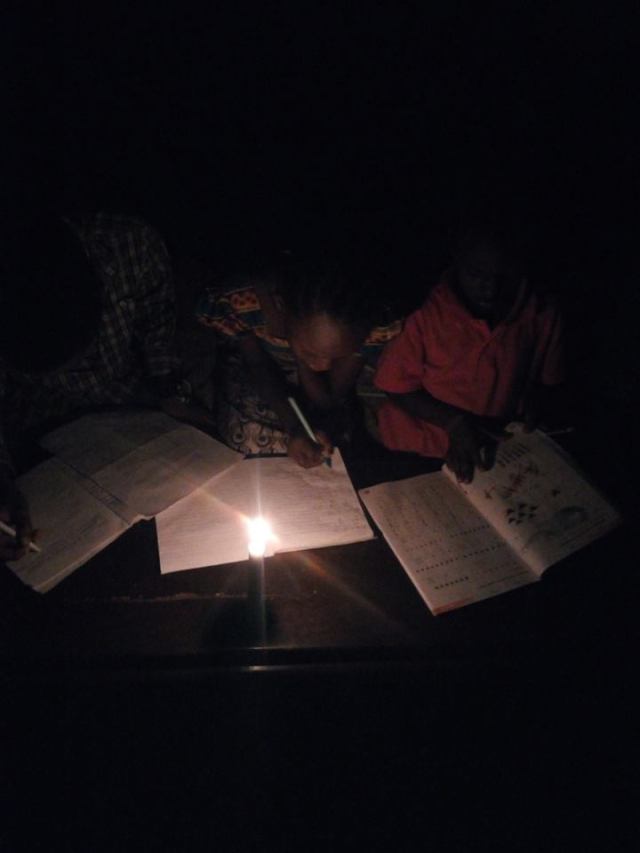 — By Ifeoluwa from Nigeria
— By Ifeoluwa from Nigeria
This project was completed as part of a special course on electricity, in partnership with the Enel Foundation.
When I wake in the morning, inside my room in Ibadan, Nigeria, my eyes quickly dart to the electrical socket on the wall opposite my bed. After confirming with this involuntary action, that there is indeed electricity, then comes the rush to plug my laptop and phone for charging because the availability of electricity determines my capability to work and earn. Without electricity, my life and career as a freelance writer come to a standstill. This is very much the case because I have weaned myself off the paper and the pen. Gone are the days when I could not write straight up on my laptop and scribbled first on a notepad. By way of adaptation to the absence of constant electricity, I have had to learn to write full stories on my smartphone. The 4500mAh battery capacity of my phone was the most important factor in purchasing it.
In Nigeria, petrol and diesel generators are the common alternative sources of electricity. At night, the loud noises of generators sync with the natural sounds of the environment. In my house, we have two petrol generators. When there is no power, we use the higher powered generator to run the pump which supplies water from the deep well into the house while the smaller generator serves to provide lighting and to charge phones and rechargeable lanterns. When the generators give up on us after continuous use for weeks, I often wield the spanner trying to clean the corroded plugs. When that fails, we need to look for a technician to fix the generator. This sometimes means staying without electricity for several hours.

During the hot months, which tend to be longer than the wet and cooler months, with no electricity to operate the fan I experience night sweats and sleeplessness spurred by the combination of the heat and noise from the loud generators operating in the environment. By morning, I often wake weak and cranky with a heavy head, reducing my level of productivity throughout the day. Things get to a head during periods of petrol scarcity when there is unsteady electricity supply and we cannot purchase fuel for the generators. The foods in the fridge start to go bad; when I boil and fry the frozen turkey, it tastes funny like roasted bush meat. I comfort myself with the idea that it is a new acquired taste and push away thoughts of diarrhea induced by food poisoning; I am reluctant to throw away food bought with my hard-earned money.
On the days when there is continuous electricity supply for 12 hours non-stop, I stare at the bulb with a sense of foreboding slowly settling over me. The usual pattern is electricity becoming steadier for about one or two weeks followed by a protracted lack of electricity thereafter. The typical culprits – a fault in the transformer, vandalisation or theft of cables, and felled cables as a result of heavy rainfall, not so common but tenable – highlight the biggest problem in the power sector: lack of sustainability. Unstable electricity supply has become so deeply ingrained in my daily life that I almost consider it a norm. Where do we go from here?
On January 22, 2017, when the Transmission Company of Nigeria announced that the nation’s power generation capacity had dropped to 2,662 megawatts, I knew the electricity situation had just taken a nose dive because that power capacity is supposed to cater to an approximate land mass of 910,770 sq. km. In 2013, I had conceived some hope when the Nigerian government decided to privatise the electricity generation and distribution companies with an aim towards improvement. We now have one transmission company, six generation companies and eleven distribution companies. However, to my disappointment, the names just changed but the system remained the same. This notion is strongly supported by the refusal of the public to adopt the use of the new companies’ names – everyone still refers to them by the former government-owned name – NEPA (National Electricity Power Authority). That acronym has acquired a popular different meaning – ‘Never expect power always’.
Some of the problems ailing the distribution companies include lack of maintenance as the facilities develop faults incessantly and the maintenance fees being paid as part of the electric bill seem to be misappropriated. I am projecting that the privatisation failed to change the situation for the better because the restructuring only resulted in a decentralised system and did not leave room for healthy competition. We are still constrained to use a particular distribution company according to the location one resides in. I believe if we have the freedom to choose from the distribution companies available without being restricted by our location, we can trigger better service delivery as each of the companies will step up to the risk of losing their consumers. I realise the kind of structure I am proposing may not be as simplistic as it sounds, but it can be achieved with proper provisions being made.
At present, the major concern in the energy sector in Nigeria remains the generation of higher megawatts from hydro/thermal plants to reach the total populace. Apart from the provision of solar panels, which is mostly facilitated by international organisations targeting the rural areas to power the preservation of vaccines and other medical amenities where there is a higher lack of electricity, there is very little research in the area of renewable energy. This is justified partly by its attendant high cost.
Recently, a South African Telecommunications company in Nigeria started offering a Mobile Solar Home System to their subscribers. This at best represents an elite solution to a problem which affects both the rich and poor. In Nigeria, the national minimum wage is 18,000 Naira and this solar system is priced at 26,000 Naira minus the inclusive monthly subscription fee. Therefore, for solar energy to be a verifiable solution to electricity problems in Nigeria, government will have to provide major initial subsidies to make it accessible to everyone irrespective of their social or economic class. There is also a vital need for relevant researches to be conducted on experimental sources of renewable energy. A friend once told me of an individual in Porto Novo, the capital city of Benin, in West Africa, investing in the conversion of gases derived from animal wastes to generate electricity. I was at once captivated by such an innovative idea which can easily be adopted in Nigeria with its dominant agrarian cultures.
For most Nigerian youths, we have been conditioned to think government has to do everything for us because of the lack of an enabling environment riddled with corruption and ineffectual governance. However, we need to accept that we all have a part to play. Whether through demanding accountability from our government to foster the right solutions and develop a sustainable program or facilitating more academic and field researches on the possibilities of renewable energy, we just need to start and do something.
As I type these concluding lines, I can hear children in my neighborhood, squealing in delight – ‘Up NEPA!’ a welcoming herald of electricity being restored in our homes. I look forward to that day when 24-hour electricity becomes a reality in my country.




 — By Franklin from Nigeria
— By Franklin from Nigeria — By Anibe from Nigeria
— By Anibe from Nigeria — By Tobenna from Nigeria
— By Tobenna from Nigeria — By Ejiro from Nigeria
— By Ejiro from Nigeria — By Chinemerem from Nigeria
— By Chinemerem from Nigeria